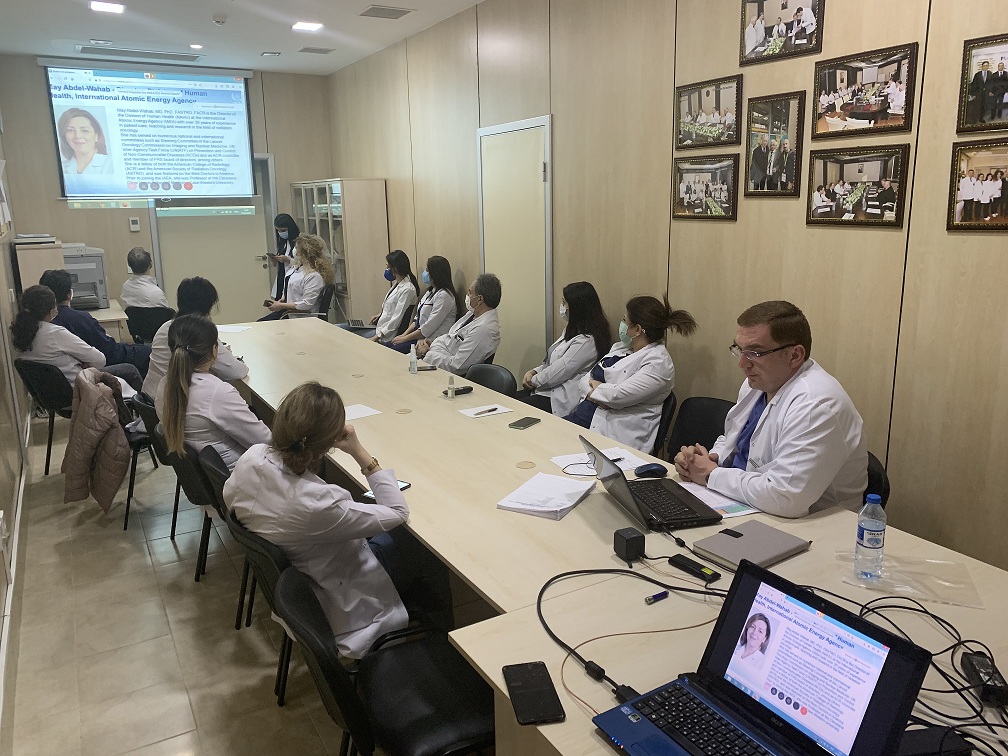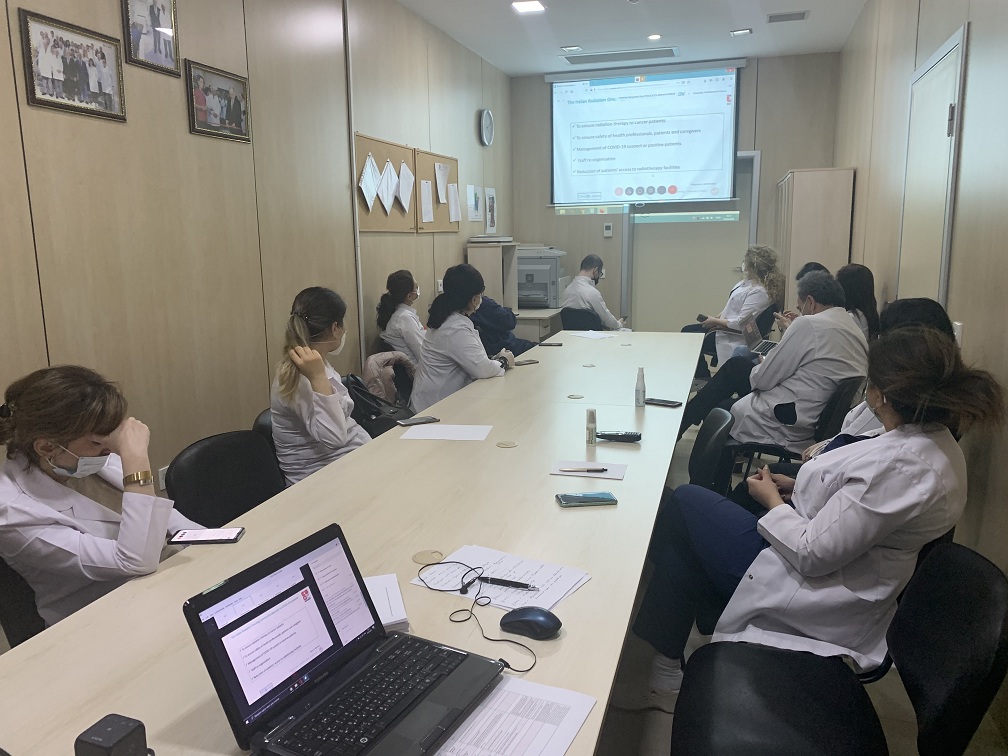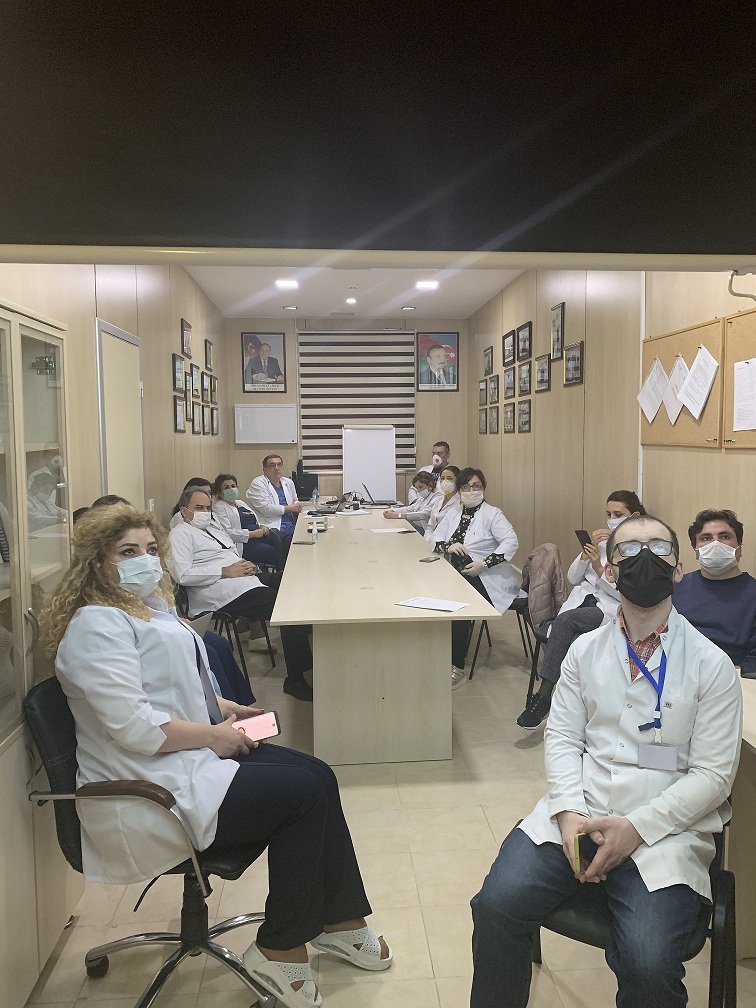Radiation therapy for cancer patients during the coronavirus COVID-19 pandemic



During the coronavirus (COVID-19) pandemic, which has become a global disaster, the staff of the Radiation Therapy and Medical Physics Departments of the National Center of Oncology have not suspended delivering radiotherapy to the patients with malignant tumors. Relevant algorithms and guidelines developed by the leading clinics of the world and the International Societies (ASTRO, ESTRO, etc.) are widely used in the implementation of radiation therapy taking into consideration the minimization of the risk of the patients and the medical staff to be infected and spread the illness. On April 3, 2020, the International Atomic Energy Agency (IAEA) held an international webinar (online conference) on the topic “COVID-19 Preparedness for Radiotherapy Departments: Towards Consensus on Best Practices” with the participation of the doctors and medical physicists of the Radiation Therapy Department of the National Center of Oncology of the Republic of Azerbaijan. The purpose of the webinar, which was attended by more than 1,200 specialists (radiotherapists and medical radiation physicists) from all over the world, was to share experience and exchange views on radiotherapy services during the COVID-19 pandemic. The speech of Dr. Pierfrancesko Franco, an Italian doctor working in a very difficult pandemic situation, was listened with great interest. In the discussion on defining the time for radiotherapy, taking into consideration individual and situational factors, it was unanimously agreed that radiation therapy can be postponed in the case if it does not negatively affect the effectiveness of the patient’s treatment. If the treatment cannot be delayed, radiotherapy should be given taking the strict precautionary measures against coronavirus. To minimize the risk of getting infected and infecting other patients, these patients must undergo inpatient radiotherapy. Prioritizing the selection of the patients getting primary or ongoing treatment in accordance with the medical guidelines, limitation of the number of patients were discussed in the conference. The strategies for protecting patients, medical staff and others from the infection, personnel shifts, use of telemedicine, disinfection, and treatment process of COVID-positive or suspected COVID patients were also discussed in the conference. The conference focused on the possible changes to existing radiation therapy protocols (dose-technique-fraction) taking into consideration the localization, stage and other factors of malignant tumors, preference for hypofraction radiotherapy regimens, equipment maintenance, and possible modifications in radiotherapy practice, including patients in clinical trials. At the same time, the experts exchanged views on the problems of psychological support for medical staff and patients. All participants unanimously agreed that online conferences should be held regularly in the future.
Undoubtedly, the webinar with the participation of radiation oncologists and medical radiation physicists from the world's leading clinics will be a great support for the National Center of Oncology staff working in the difficult coronavirus (COVID 19) pandemic situation.
Professor Isa H.Isayev,
Head of the Radiotherapy Department of the National Center of Oncology



